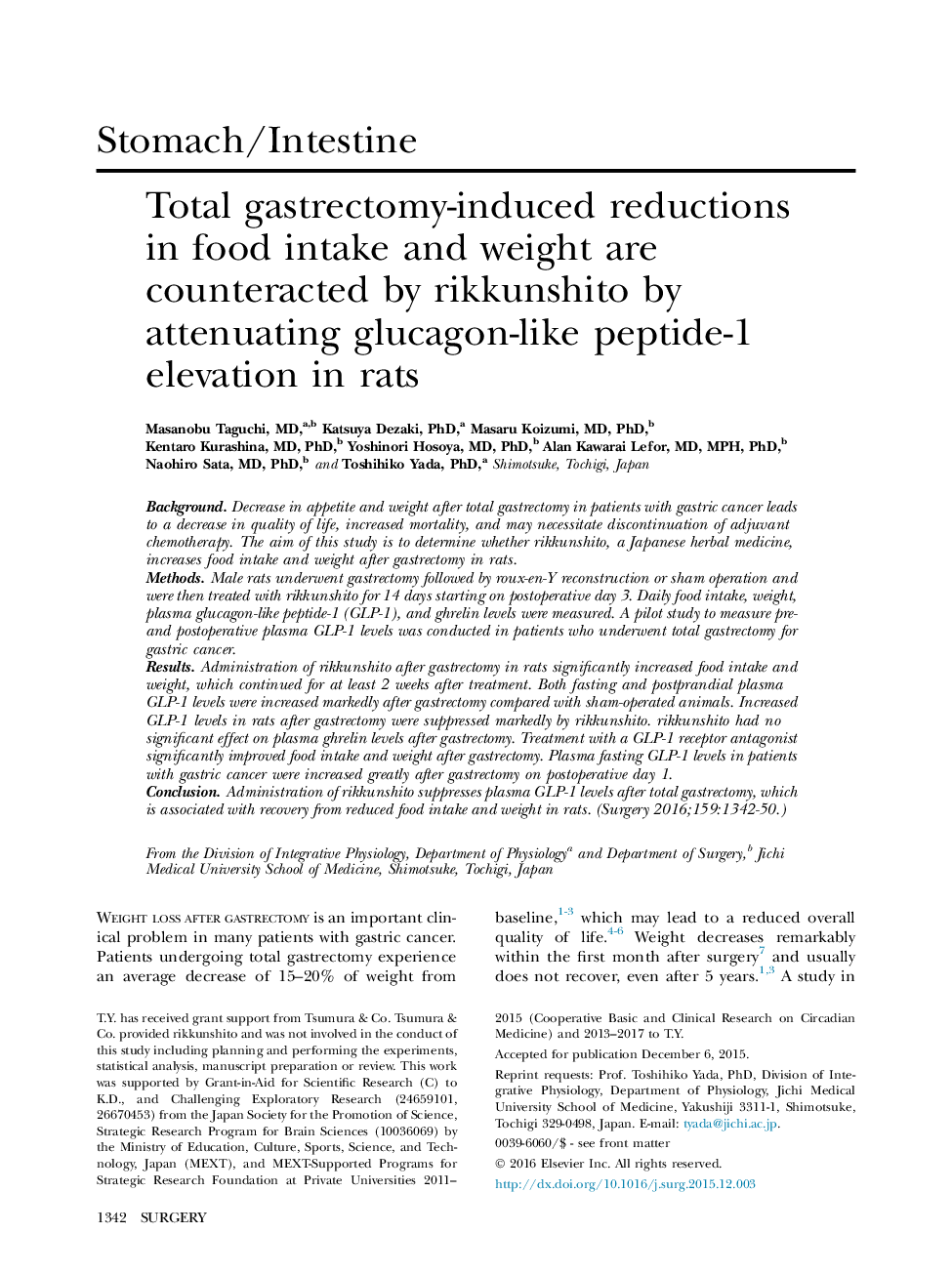| Article ID | Journal | Published Year | Pages | File Type |
|---|---|---|---|---|
| 6255057 | Surgery | 2016 | 9 Pages |
BackgroundDecrease in appetite and weight after total gastrectomy in patients with gastric cancer leads to a decrease in quality of life, increased mortality, and may necessitate discontinuation of adjuvant chemotherapy. The aim of this study is to determine whether rikkunshito, a Japanese herbal medicine, increases food intake and weight after gastrectomy in rats.MethodsMale rats underwent gastrectomy followed by roux-en-Y reconstruction or sham operation and were then treated with rikkunshito for 14 days starting on postoperative day 3. Daily food intake, weight, plasma glucagon-like peptide-1 (GLP-1), and ghrelin levels were measured. A pilot study to measure pre- and postoperative plasma GLP-1 levels was conducted in patients who underwent total gastrectomy for gastric cancer.ResultsAdministration of rikkunshito after gastrectomy in rats significantly increased food intake and weight, which continued for at least 2 weeks after treatment. Both fasting and postprandial plasma GLP-1 levels were increased markedly after gastrectomy compared with sham-operated animals. Increased GLP-1 levels in rats after gastrectomy were suppressed markedly by rikkunshito. rikkunshito had no significant effect on plasma ghrelin levels after gastrectomy. Treatment with a GLP-1 receptor antagonist significantly improved food intake and weight after gastrectomy. Plasma fasting GLP-1 levels in patients with gastric cancer were increased greatly after gastrectomy on postoperative day 1.ConclusionAdministration of rikkunshito suppresses plasma GLP-1 levels after total gastrectomy, which is associated with recovery from reduced food intake and weight in rats.
